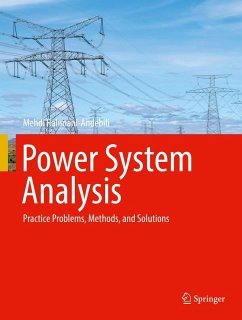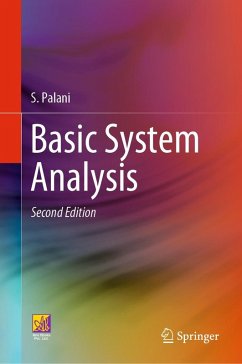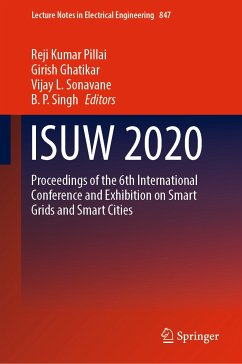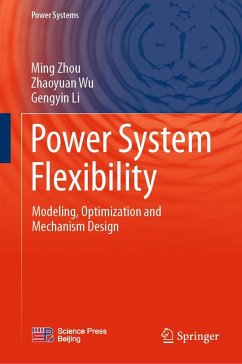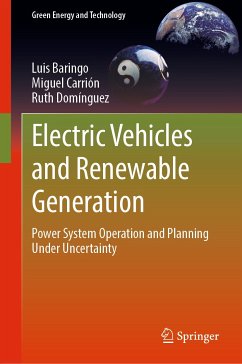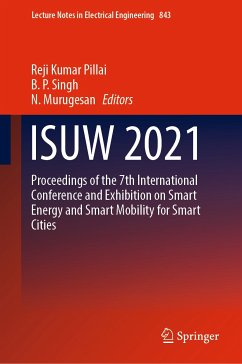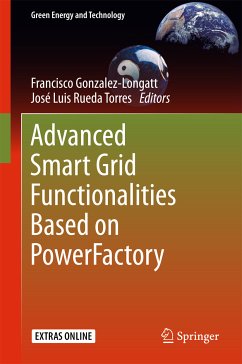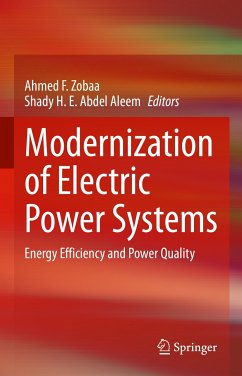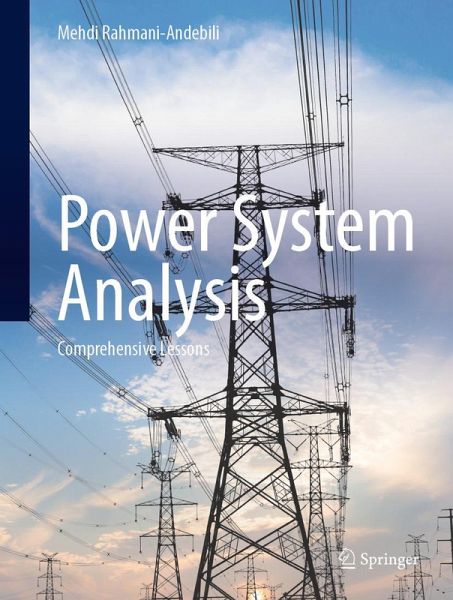
Power System Analysis (eBook, PDF)
Comprehensive Lessons
Versandkostenfrei!
Sofort per Download lieferbar
72,95 €
inkl. MwSt.
Weitere Ausgaben:

PAYBACK Punkte
36 °P sammeln!
Power System Analysis: Comprehensive Lessons is designed for upper-level undergraduate and graduate students taking electric power system analysis courses. The classroom-tested textbook covers the fundamental concepts in power system analysis, per-unit system, single-phase and three-phase transformers, synchronous generators, transmission line parameters, transmission line models and performance, bus admittance and impedance matrices, and power flow analysis. It provides comprehensive lessons with examples that offer detailed solutions to help students learn theoretical, numerical, and real-wo...
Power System Analysis: Comprehensive Lessons is designed for upper-level undergraduate and graduate students taking electric power system analysis courses. The classroom-tested textbook covers the fundamental concepts in power system analysis, per-unit system, single-phase and three-phase transformers, synchronous generators, transmission line parameters, transmission line models and performance, bus admittance and impedance matrices, and power flow analysis. It provides comprehensive lessons with examples that offer detailed solutions to help students learn theoretical, numerical, and real-world problems. Additionally, partially solved exercises encourage students to solve problems while guiding them through the problem-solving process with hints to the required formulas, and exercises with final answers encourage students to practice independently. Problems without solutions or final answers will aid instructors in designing tests and quizzes and encourage motivated students.
This textbook will improve students' problem-solving skills and foster a solid understanding of power system analysis by offering detailed lessons and problem solutions, multiple methods for solving problems, and clear explanations of concepts.
This textbook will improve students' problem-solving skills and foster a solid understanding of power system analysis by offering detailed lessons and problem solutions, multiple methods for solving problems, and clear explanations of concepts.
Dieser Download kann aus rechtlichen Gründen nur mit Rechnungsadresse in A, B, BG, CY, CZ, D, DK, EW, E, FIN, F, GR, HR, H, IRL, I, LT, L, LR, M, NL, PL, P, R, S, SLO, SK ausgeliefert werden.



